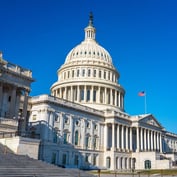States should not enact the National Association of Insurance Commissioners’ Viatical Settlement Model Law without changing it to bar speculative use of life insurance, say groups representing life insurers and agents.
The American Council of Life Insurers, the Association for Advanced Life Underwriting, the National Association of Insurance and Financial Advisors, and the National Association of Independent Life Brokerage Agencies expressed their opposition to the model law, which was first adopted by the NAIC in 1993.
Legislation based on the model law is pending in several states, including California, Illinois, New York and South Carolina. The model law originally was crafted to regulate the viatical settlement industry, in which terminally ill individuals sell their life insurance policies to investors, but the life groups say it contains a loophole allowing for speculation.
“We supported the model to make viatical settlement agreements available to policyholders with terminal illnesses who were in need of funds for medical expenses,” said Frank Keating, ACLI president and CEO. “The model provides important disclosures and protections to consumers at a very vulnerable time in their lives.”
The groups noted that the growth of viatical settlements has led to the development of other arrangements in which investors who do not have an insurable interest are initiating life coverage on older people with no health problems and paying the premiums for the coverage. Once the policy’s two-year incontestability period expires, control of the policy is shifted to the investors, who would then collect the death benefit.
“An unrelated third party should not be allowed to initiate a life insurance contract on a person’s life,” said David Stertzer, CEO of AALU. “These transactions circumvent the intent of state insurable interest laws. When a life insurance policy is purchased, it should be intended for the benefit of a person who has a relationship to the insured and an economic interest in his or her longevity.”








 February 26, 2006 at 02:00 PM
February 26, 2006 at 02:00 PM










